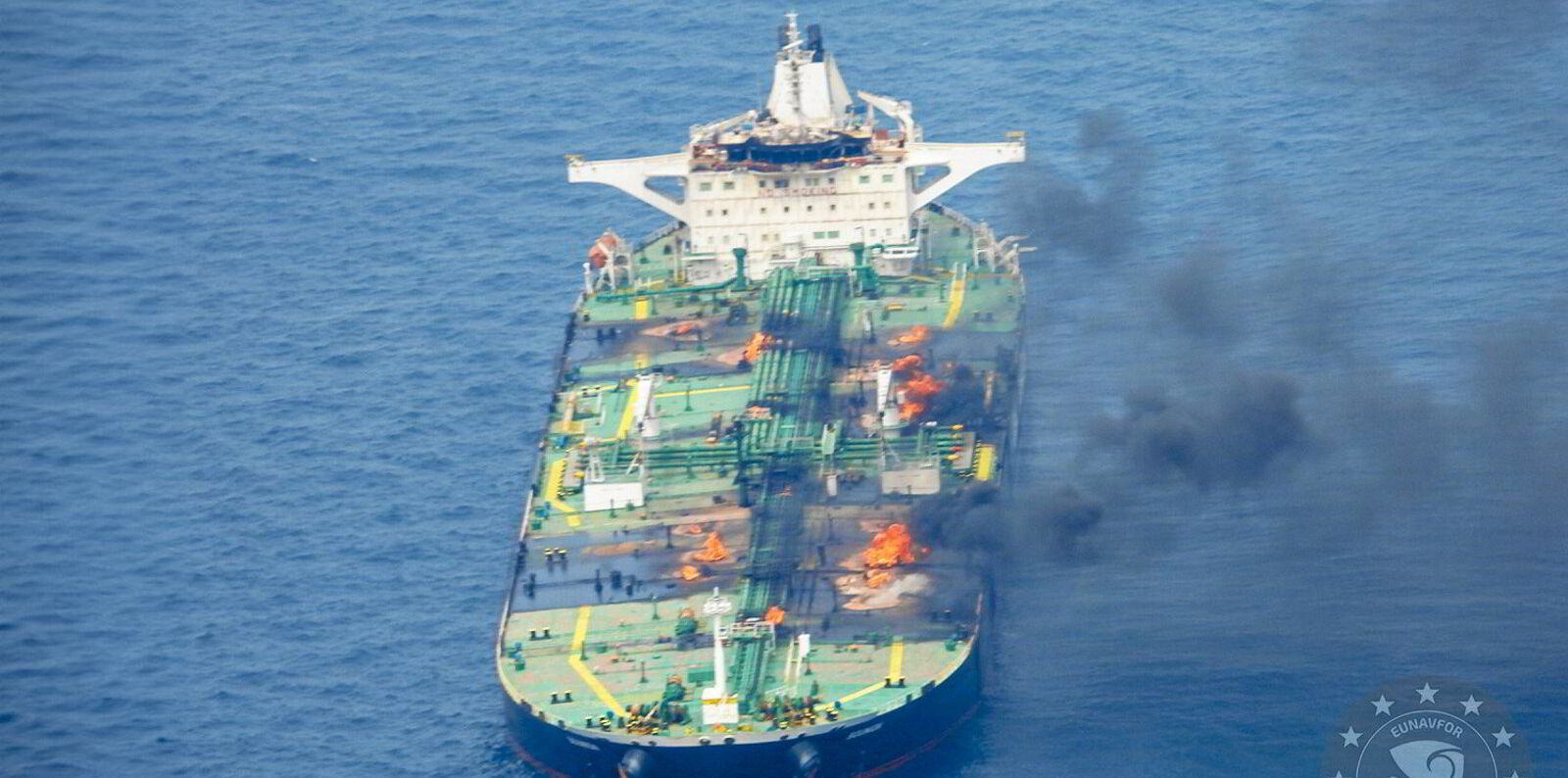Ships that turn off their tracking systems during Red Sea transits are much more likely to evade missile attacks than operators who follow Houthi orders to keep them on, according to data from the European Union’s naval task force.
The Aspides naval mission said only 6% of Houthi missile attacks hit their targets over the last eight months when ships had AIS switched off.
That compared to 75% of attacks that struck home when ships were signalling their positions using their tracking systems, according to the EU naval command.
“Turning AIS off saves lives,” according to a list of recommendations to seafarers by Aspides.
It said AIS and the long-range identification and tracking, or LRIT, system should be switched off “as soon as possible before entering the area of concern”.
The advantages of switching off AIS appeared less stark in data compiled of 102 Houthi attacks on ships by the 46-nation naval partnership, the Combined Maritime Forces, in an update published on Monday.
It said the ships attacked were evenly split between vessels with their AIS switched on and those with it off.
When AIS was switched off, about 74% of the attacks were unsuccessful compared with 52% when it was on, according to data supplied by the partnership’s information arm.
“AIS on or off does not appear to have an impact on whether or not a vessel will be targeted,” said the update. “However, if targeted, based on the available data, vessels with AIS off are less likely to be hit.”
Houthis direct their anti-ship ballistic missiles, or sea drones, using the electronic signals of a vessel or from coordinates relayed by spotters on the sea, said Joshua Hutchinson, the managing director of intelligence and risk for security firm Ambrey.
On the final approach, the targeting is adjusted by a homing beacon in the missile.
“It’s the last mile of identification when the AIS is going to give the game away,” he said.
The Aspides’ advice “is to emit as minimal signals as possible. AIS does make it easier for the Houthis to target a vessel — but switching this off alone is not a guarantee of safe passage”.
TradeWinds reported in May that Houthis typically issue warnings to companies regarding the Red Sea routes they seek to block, either through threatening emails to management firms or direct radio contact with vessels in transit.
A Houthi radio message broadcast to ships last month included advice to shipping companies with “no connection to the Israeli enemy” that they were safe to transit and should keep their AIS systems switched on.
Loud and proud

“The best preventative course here is that if you fit that Houthi target profile, do not enter the Red Sea or the Gulf of Aden,” said Martin Kelly, head of advisory at EOS Risk Group and a former lead analyst for the Gulf and Yemen of the British Royal Navy’s Bahrain command.
“If you’re certain that you do not fit the profile, then be loud and proud on AIS and let everybody know so there is no misunderstanding who you are and that you’re safe to travel in that part of the world.”
Safety guidance issued by a coalition of shipping groups last month said that turning off AIS was unlikely to prevent an attack and made it only marginally more difficult for the Houthis to track a vessel.
A five-page summary of the industry guidance said attacks intended for one vessel could result in another ship close by being hit.
The warning appears to have played out in an attack on 1 October when the 76,800-dwt Minoan Courage (built 2013) was struck by a missile believed to have been intended for the 163,300-dwt Cordelia Moon (built 2013).
Read more
- Russia’s ‘merchant of death’ Viktor Bout denies links to Houthi arms cargoes
- ‘It could get hairy’: What all-out war in the Middle East could mean for energy shipping
- Greek bulker struck by Houthi missile in Red Sea ‘accidentally’, manager says
- Investors flee Zim shares on news of settlement in US port strike
- Video: Houthi footage shows sea drone attack on Ultrapetrol tanker in Red Sea





